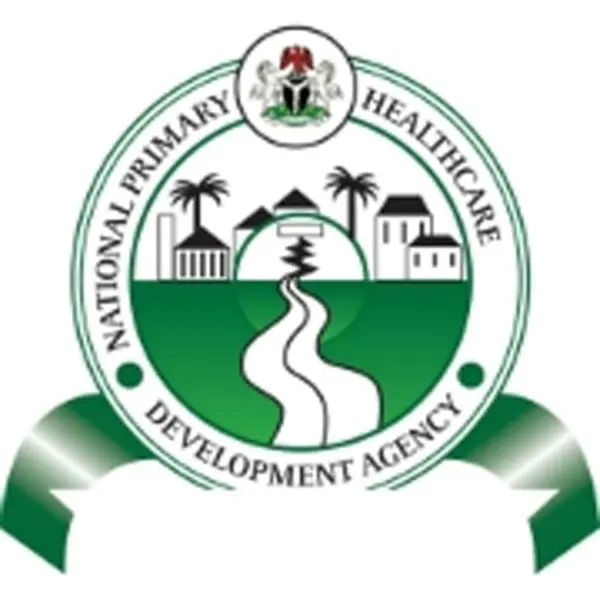
The National Primary Health Care Development Agency (NPHCDA) is gearing up for the second phase of Human Papillomavirus (HPV) vaccination across 21 states in the country amidst challenges from anti-vaccine movements.
Director of disease control and immunisation at NPHCDA, Dr. Rufai Garba made these remarks on Friday in Abuja during a sensitisation meeting with women religious groups and the National Association of Women Journalists (NAWOJ) to discuss the rollout of the HPV vaccine across 21 states in Nigeria.
According to Science Nigeria, the HPV vaccine aims to protect against infections caused by specific strains of HPV, which can lead to various health issues such as genital warts and cancers like cervical, anal and oropharyngeal cancers.
The vaccine is most effective when administered before individuals become sexually active, usually recommended for preteens around ages 11 or 12 but can be given as early as age 9 and up to age 26. It is a part of public health initiatives to decrease the prevalence of HPV-related diseases.
Garba mentioned that the upcoming second phase of vaccine implementation will encompass 21 states: Anambra, Borno, Cross River, Delta, Ebonyi, Edo, Ekiti, Gombe, Imo, Kaduna, Katsina, Kwara, Kogi, Niger, Ondo, Oyo, Plateau, Rivers, Sokoto, Yobe and Zamfara.
He expressed confidence in the public’s cooperation, noting that the initial phase encountered significant resistance from anti-vaccine groups who spread misinformation, including high-quality videos aimed at dissuading vaccination.
Despite these challenges, he assured that the country has sufficient vaccine supplies and has commenced distribution to states, with the rollout set to begin on May 27, 2024.
Garba emphasised the importance of proactive public awareness to counter misinformation, drawing insights from previous experiences with polio and HPV vaccines. He affirmed the government’s dedication to extensive outreach efforts throughout the campaign and urged journalists to ensure accurate information reaches the public.
He stressed that every girl aged 9 to 14 deserves protection and that the HPV vaccine guards against common strains of the Human Papillomavirus that can lead to cervical cancer.
He called on Nigerians to prioritise the health of young girls and lead the way in prevention.
Recalling the collaboration between NPHCDA and Girl Effect Nigeria, which organised the sensitisation meeting, the event aimed to educate participants about HPV and the new vaccine initiative in Nigeria, identify areas of support for the rollout, align the roles of women religious leaders and NAWOJ and secure their commitment.
Attendees included national executive officers from various organisations such as the Federation of Muslim Women’s Associations in Nigeria (FOMWAN) and Nasrul-Lahi-L-Fatih Society (NASFAT), Anglican Women, Catholic Women, Jama’atu Nasril Islam (JNI) Women Wing, Christian Association of Nigeria (CAN) Women Wing, Nigeria Inter-Faith Action Association (NIFAA) and NAWOJ.
These representatives are tasked with disseminating the information to their state chapters, local governments, and association members at different committee levels.
By Abujah Racheal
The National Primary Health Care Development Agency (NPHCDA) is gearing up for the second phase of Human Papillomavirus (HPV) vaccination across 21 states in the country amidst challenges from anti-vaccine movements.
Director of disease control and immunisation at NPHCDA, Dr. Rufai Garba made these remarks on Friday in Abuja during a sensitisation meeting with women religious groups and the National Association of Women Journalists (NAWOJ) to discuss the rollout of the HPV vaccine across 21 states in Nigeria.
According to Science Nigeria, the HPV vaccine aims to protect against infections caused by specific strains of HPV, which can lead to various health issues such as genital warts and cancers like cervical, anal and oropharyngeal cancers.
The vaccine is most effective when administered before individuals become sexually active, usually recommended for preteens around ages 11 or 12 but can be given as early as age 9 and up to age 26. It is a part of public health initiatives to decrease the prevalence of HPV-related diseases.
Garba mentioned that the upcoming second phase of vaccine implementation will encompass 21 states: Anambra, Borno, Cross River, Delta, Ebonyi, Edo, Ekiti, Gombe, Imo, Kaduna, Katsina, Kwara, Kogi, Niger, Ondo, Oyo, Plateau, Rivers, Sokoto, Yobe and Zamfara.
He expressed confidence in the public’s cooperation, noting that the initial phase encountered significant resistance from anti-vaccine groups who spread misinformation, including high-quality videos aimed at dissuading vaccination.
Despite these challenges, he assured that the country has sufficient vaccine supplies and has commenced distribution to states, with the rollout set to begin on May 27, 2024.
Garba emphasised the importance of proactive public awareness to counter misinformation, drawing insights from previous experiences with polio and HPV vaccines. He affirmed the government’s dedication to extensive outreach efforts throughout the campaign and urged journalists to ensure accurate information reaches the public.
He stressed that every girl aged 9 to 14 deserves protection and that the HPV vaccine guards against common strains of the Human Papillomavirus that can lead to cervical cancer.
He called on Nigerians to prioritise the health of young girls and lead the way in prevention.
Recalling the collaboration between NPHCDA and Girl Effect Nigeria, which organised the sensitisation meeting, the event aimed to educate participants about HPV and the new vaccine initiative in Nigeria, identify areas of support for the rollout, align the roles of women religious leaders and NAWOJ and secure their commitment.
Attendees included national executive officers from various organisations such as the Federation of Muslim Women’s Associations in Nigeria (FOMWAN) and Nasrul-Lahi-L-Fatih Society (NASFAT), Anglican Women, Catholic Women, Jama’atu Nasril Islam (JNI) Women Wing, Christian Association of Nigeria (CAN) Women Wing, Nigeria Inter-Faith Action Association (NIFAA) and NAWOJ.
These representatives are tasked with disseminating the information to their state chapters, local governments, and association members at different committee levels.

